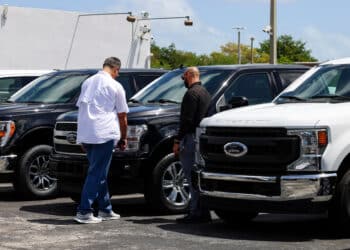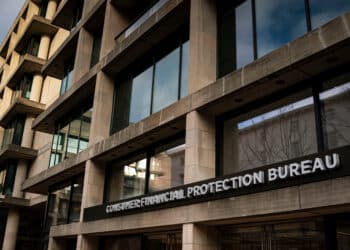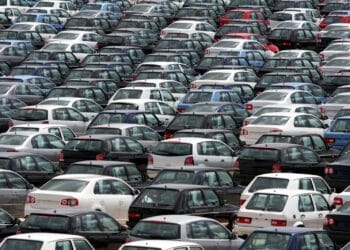Top 3 states exposed to credit losses
Auto lenders with the highest volume of loans outstanding in California, Texas and Florida are the most exposed to future increased credit losses resulting from the COVID-19 crisis, according to a study of securitized assets by DBRS Morningstar.
The U.S. has not yet hit its peak number of cases, according to the Centers for Disease Control and Prevention. In addition, jobless claims reported by the U.S. Bureau of Labor Statistics for the four-week period ending April 11 topped a record 22 million people, erasing a decade of growth.
As a result, auto loan delinquencies are “likely to spike, which could result in higher losses,” said Stephanie Mah, vice president of DBRS Morningstar Structured Finance Research. While most lenders have yet to show any major spikes in delinquencies, some hold a larger market share in these states and are exposed to higher risk.
California
California has the highest concentration of outstanding loan balances in the country, accounting for 12.86% of all autos. Toyota Financial Services, which holds 10.43% of the state’s auto loans, has the highest risk of exposure in the state, followed by American Honda Finance and Chase Auto, according to AutoCount data as of February 2020.
The Golden State employs the highest number of U.S. workers, at 19.5 million, and unemployment claims have “skyrocketed” to 2.8 million claims in the four weeks ending April 11, according to DBRS and the Bureau of Labor Statistics.
California has 28,157 confirmed cases of COVID-19, according to Johns Hopkins University data, and has been under open ended shelter-in-place orders since March 19.
Texas
Total auto loans outstanding in Texas account for 12.84% of the market. While Texas has not seen the same rapid increase in the number of COVID-19 cases as other states, clocking in at 17,263, the state represents the second-largest economy in the U.S. and is exposed to the most subprime borrowers.
The prolonged shutdown could result in increased delinquencies as consumers struggle to keep up with their payments. According to the Texas Workforce Commission, 1.2 million Texans have filed for unemployment. However, Gov. Greg Abbott revised the order today to allow retail stores to operate on a to-go basis, and also reopen state parks starting April 24.
Capital One Auto Finance has the highest risk exposure in the Lone Star state, making up 5.58% of the market share, followed by TFS and Ally Financial.
The state’s shelter-in-place order began March 19.
Florida
Florida holds the third-highest percentage of auto loan balances outstanding in the country, at 9.78%. World Omni Financial, Capital One Auto Finance and Ally Financial hold the largest market share in the Sunshine State, at 6.5%, 5.66% and 5.46%, respectively.
While only 650,000 Floridians have filed for unemployment in the third most populated state, that number is expected to “sharply increase” since Gov. Ron DeSantis gave the shelter-in-place order April 3, weeks after many other states. DeSantis is already walking back some of that order two weeks later by allowing some beaches and parks to open as early as today, according to published reports. Florida’s confirmed COVID-19 cases have clocked in at 23,340.
Further, the Florida Department of Economic Opportunity halted unemployment applications April 12, because the “system was overwhelmed and needed to be retooled,” according to the DBRS report. The state has since begun accepting mail-in unemployment applications.
While the $2.2 trillion Coronavirus Aid, Relief, and Economic Security (CARES) Act will “likely provide some economic relief to consumers in the form of stimulus checks for select American families and the extension of unemployment insurance benefits,” that aid may only serve as a Band-Aid as business closures and social distancing guidelines are extended, the report noted.















